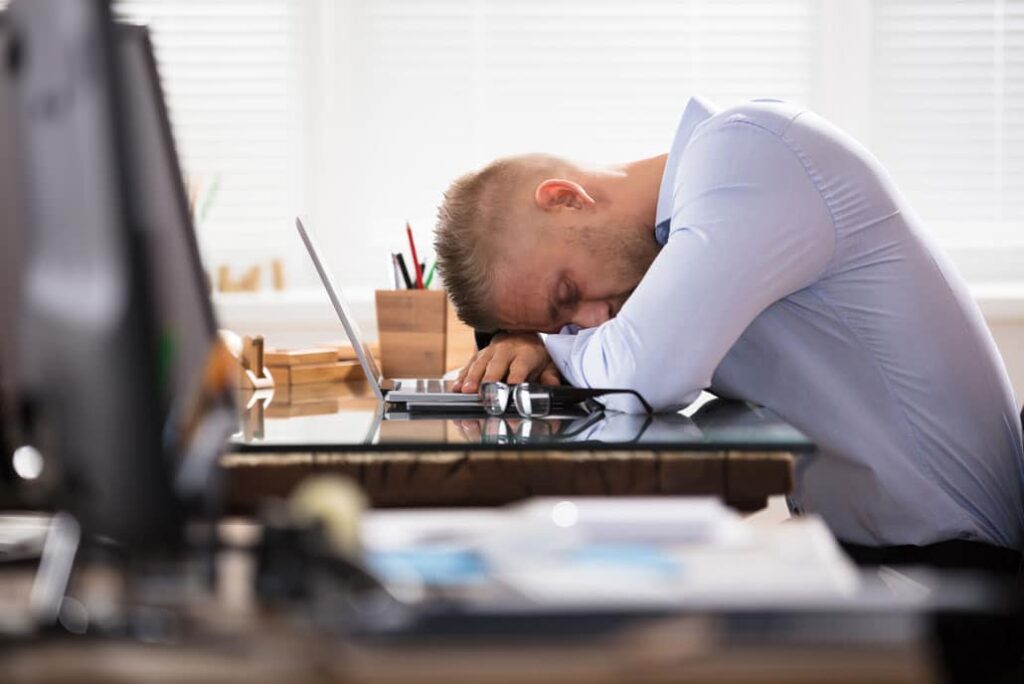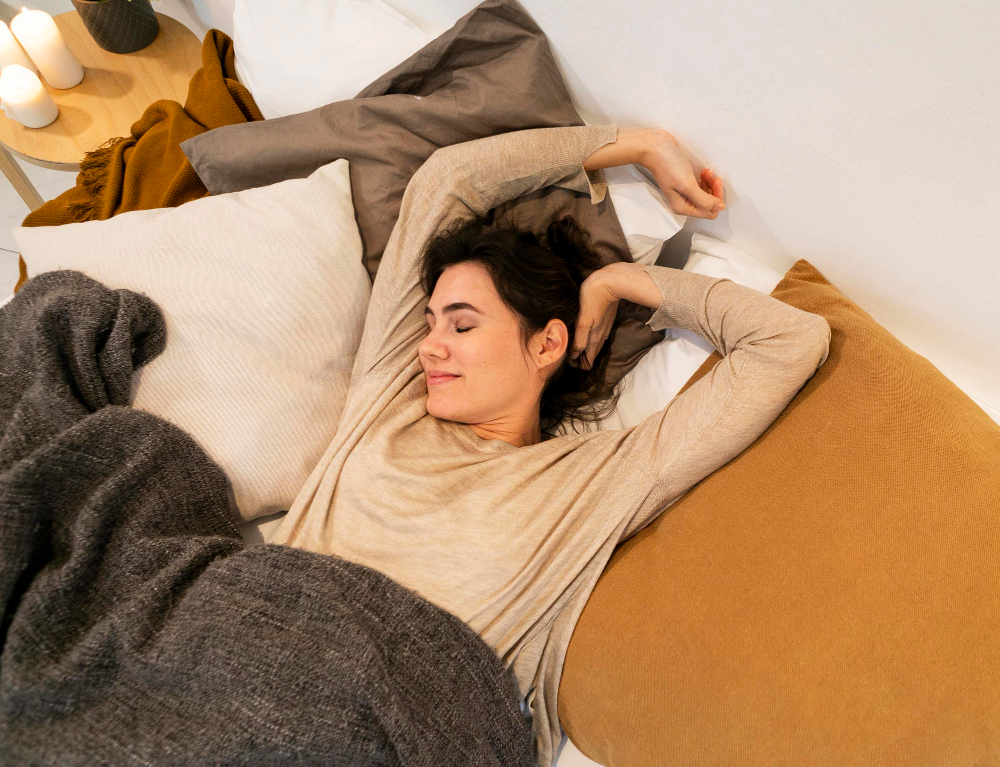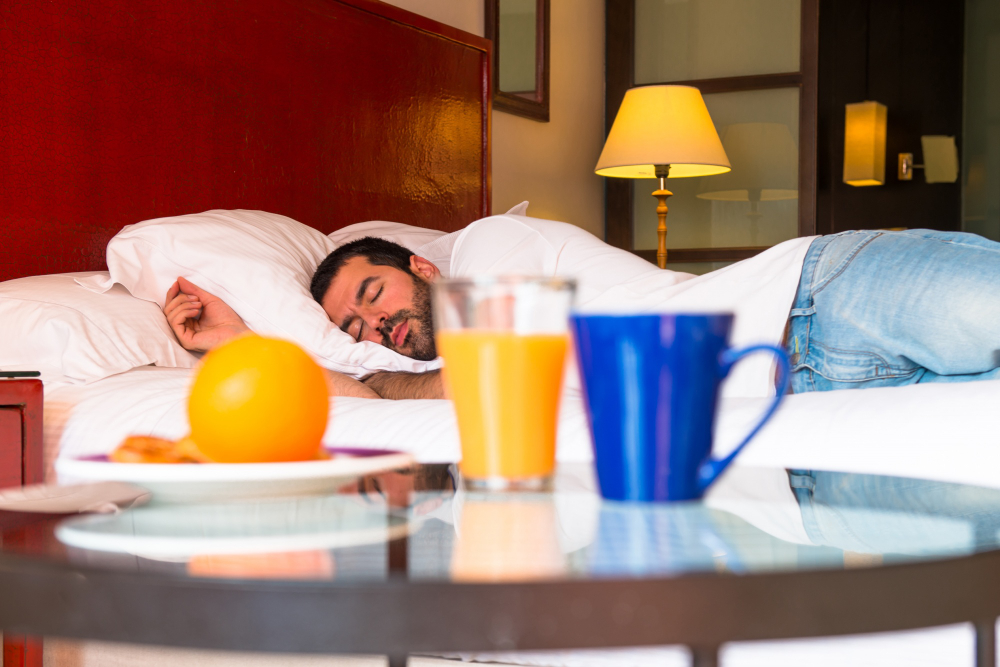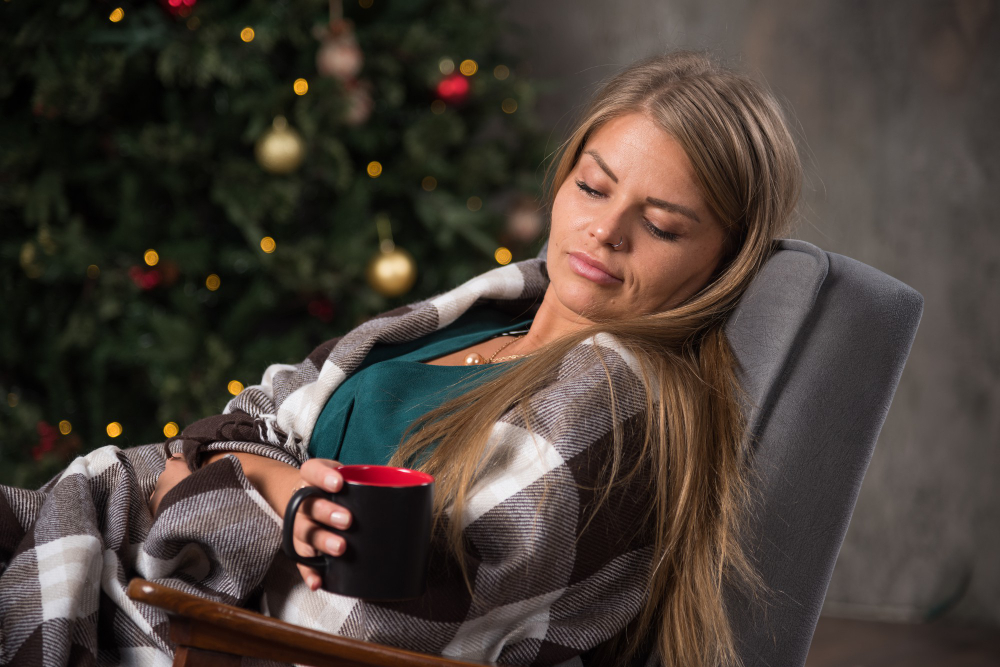
For some of us, work is a real snoozer. For others, the stress of our job or a nightmarish work environment brings on nightly fits of restless tossing and turning. The 2019 State of America’s Sleep research study reveals the effects that lack of sleep has on work performance. (Hint: When one isn’t going well, the other suffers.)
Working Longer and Sleeping Less
According to the Bureau of Labor Statistics, full-time workers put in an average of 8.5 hours a day during the week. Working adults in the State of America’s Sleep study report sleeping just 6.84 hours on average a night. That means all of us wage earners spend about 100 more minutes on the clock than in bed every day, and we’re getting far less than the 7-8 hours of sleep that experts recommend.
“If you could choose to either spend an extra hour and a half in bed asleep every day or be at the office, you’d struggle to find someone who would choose work,” said Mary Helen Rogers, vice president of marketing and communications for the Better Sleep Council. “But that’s the reality of how the majority of us spend our time.”
Tired. Underperforming. Even Dangerous
Staying up late to finish a report. Picking up a second shift of overtime. Taking on a ride-sharing gig at night. (Sound familiar?) You may think trading sleep for work is a way to stay ahead. Think again:
- The American Academy of Sleep Medicine found that as little as an hour or two of sleep loss contributed to a 19% drop in productivity
- A study published in the Journal of Occupational and Environmental Medicine found a high correlation between sleep deficiency and physical pain in healthcare workers, with a third of those workers reporting enough pain to interfere with working
Less Sleep Means Less Job Satisfaction
It’s not just your job that affects your sleep. It appears that sleep (or lack of it) has a lot to do with how you feel about your job too.
Nearly six out of 10 employed adults (57%) who answered the State of America’s Sleep study classified themselves as poor sleepers. Compared with workers who said they were excellent sleepers (29%), poor sleepers were:
- More than twice as likely (2.3 times) to not enjoy the work they do
- More than twice as likely (2.4 times) to feel undervalued at work
- About twice as likely (2.2 times) to dislike their colleagues
- 50% more likely (1.5 times) to feel under pressure at work
Establish A Good Work-Sleep Balance
Want to be a rock star at work? Try sleeping in. Really. A well-rested you is a sharper, more effective performer. So set a sleep schedule, close the curtains and practice good sleep hygiene to ensure you’re getting the rest you need every night.
Wish you loved your job more? Spend more time in bed dreaming about being blissful at work. With a good night’s sleep, you’re far likely to feel better about whatever situations work throws at you.
Learn why those 40 winks of quality sleep are crucial for you to crush it at work from @BetterSleepOrg. #BSCSleepTipsSources:
- https://www.bls.gov/charts/american-time-use/emp-by-ftpt-job-edu-h.htm
- https://aasm.org/poor-sleep-at-night-could-mean-decreased-work-productivity-in-the-morning/
- https://www.ncbi.nlm.nih.gov/pmc/articles/PMC3720240/
- https://www.ncbi.nlm.nih.gov/pmc/articles/PMC4340239/
This blog provides general information about sleep and sleep products. The words and other content provided in this blog, and in any linked materials, are not intended to replace a one-on-one relationship with a qualified heath care professional. This blog should not be construed as medical advice or used to diagnose, treat, prevent or cure any disease or condition. If the reader or any other person has a medical concern, he or she should consult with an appropriately-licensed physician or other health care professional. This blog is not a substitute for professional medical advice, diagnosis or treatment, and should not be relied upon to make decisions about your health or the health of others. Never disregard professional medical advice or delay in seeking it because of something you have read on this blog or elsewhere on bettersleep.org. If you think you may have a medical emergency, immediately call your doctor or dial 911



